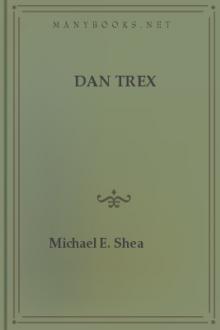How to Be a Mentsh (and Not a Shmuck) Wex, Michael (the false prince series txt) 📖

Book online «How to Be a Mentsh (and Not a Shmuck) Wex, Michael (the false prince series txt) 📖». Author Wex, Michael
The Talmud takes up the near universality of envy in a very brief and slightly cryptic passage:
What should a person do in order to live? Put himself to death. What should he do to die? Bring himself to life.
(TOMID 32A)
Rashi explains the real meaning of these answers:
Put…to death: Let him bring himself low. Bring…to life: Let him raise himself up. Doing so will cause people to cast an evil eye on him; they will envy him and he will die. Our sages have taught that a person who wishes to live should lower himself so that people will take pity on him and he will live for many years. Let him keep himself from pride lest his days grow short and he die before his time.
To hear Rashi tell it, in this passage at least, morals have nothing to do with it; humility and all the virtues associated with it are really about self-preservation. The fall that goeth after pride is the result of a swift kick from behind by a steel-booted evil eye.
That’s not what Rashi really means, of course; he’s speaking from the same strictly practical point of view as the Talmud in this passage. Nonetheless, we can see the importance of the evil eye here and the idea that there is almost no limit to human invidiousness. There’s a proverb in Yiddish—“Boday zikh eyn oyg, abi yenem tsvey, I’d gladly lose one eye, as long as the other guy loses two”—that says it all. And not just in Yiddish. The image goes back at least as far as Aesop and can be found in such unexpected places as John Gower’s almost endless fourteenth-century English poem, Confessio Amantis, and Robert Burton’s Anatomy of Melancholy. Joseph Jacobs’s rendering of Aesop gives the whole story in the form probably most familiar to readers of English:
Two neighbours came before Jupiter and prayed him to grant their hearts’ desire. Now the one was full of avarice, and the other eaten up with envy. So to punish them both, Jupiter granted that each might have whatever he wished for himself, but only on condition that his neighbour had twice as much. The Avaricious man prayed to have a room full of gold. No sooner said than done; but all his joy was turned to grief when he found that his neighbour had two rooms full of the precious metal. Then came the turn of the Envious man, who could not bear to think that his neighbour had any joy at all. So he prayed that he might have one of his own eyes put out, by which means his companion would become totally blind.
Vices are their own punishment.
The moral, such as it is, is the same on every occasion. Apart from the fact that there are plenty of shmucks out there who think and act in precisely this fashion and are happy to punish themselves, as long as they think that you’ve been punished more (many of them would deny doing so, and would actually believe their own denials), we’ve already seen that Jewish tradition would rather retrain such urges, send them to school, as it were, than try vainly to put them to death. As we are told in another Talmudic statement: “A man envies everybody except for his child and his student” (Sanhedrin 105b). Rather than waste our time trying to stamp out a fire that’s just going to reignite, we’re better off to take it and use it for something of some immediate benefit to somebody, if not ourselves then somebody else.
Well before the Talmud, the Bible recognized this problem and prescribed a way to treat the property of your enemy:
If the ox or donkey of your enemy has gone astray and you encounter it, return it to him. If you see your enemy’s donkey lying down beneath its load and would like to refrain from lifting it up, lift it up anyway.
(EXOD. 23:4–5)
Note that the idea of having an enemy is taken for granted. The context of the commandment makes it clear that the Bible isn’t talking about ex-Nazis or members of the Aryan Nations here; by enemy, it means a member of the same community as you, the kind of person who is called “fellow,” “brother,” or “sister” in more positive exhortations to benevolence, the kind of enemies who are so hard to distinguish from friends that they can end up with the friends’ invitations by mistake. We’re dealing with malevolence of feeling on either end here—unexplained and possibly inexplicable—and the biblical approach foreshadows the rabbinic realism that develops later.
Jewish ethics know a lot of things, but the thing that they know best is the Jews. Let’s not forget that many of the rabbis mentioned in this book, along with many more whose names have not come up, did not earn their living as rabbis, especially those who lived in ancient times. Hillel started out as a woodcutter; Rashi is said to have owned vineyards and made wine; Isaac Abarbanel was treasurer to King Alfonso of Portugal; many of the Hasidic rebbes mentioned had businesses of one sort or another, at least until they became established as rebbes (and often even afterward); and the Chofets Chayim ran a store for a time.
These rabbis formulated their ethical ideas on the basis of personal observation and experience, and many of them had plenty of experience on which to draw. They had both





Comments (0)